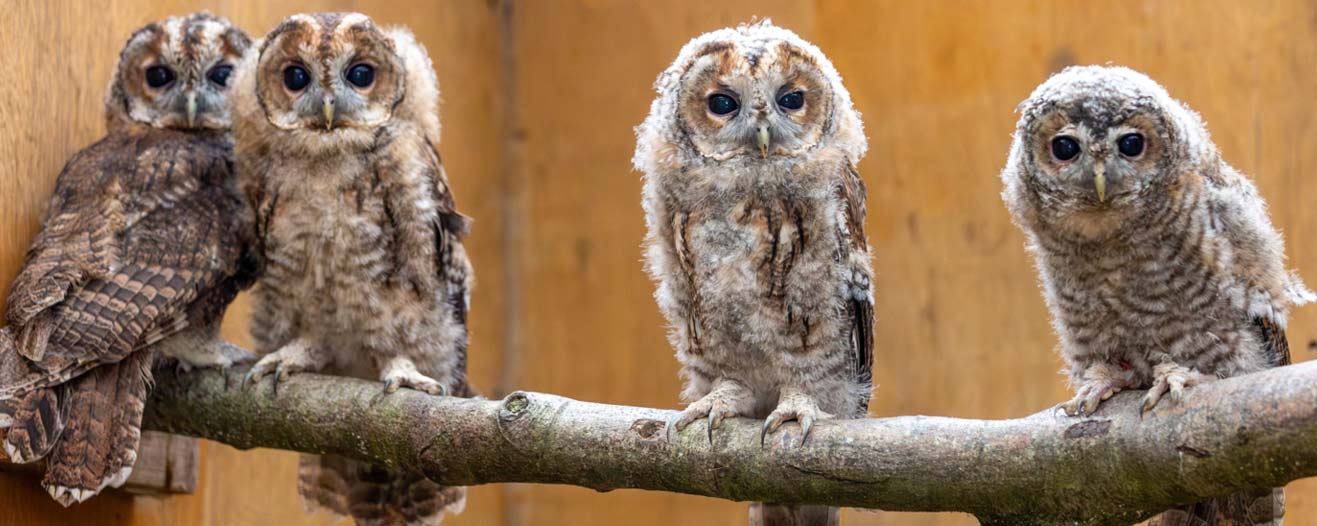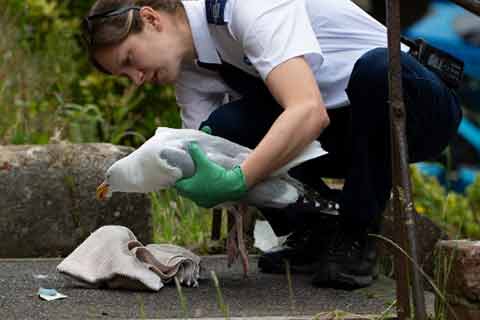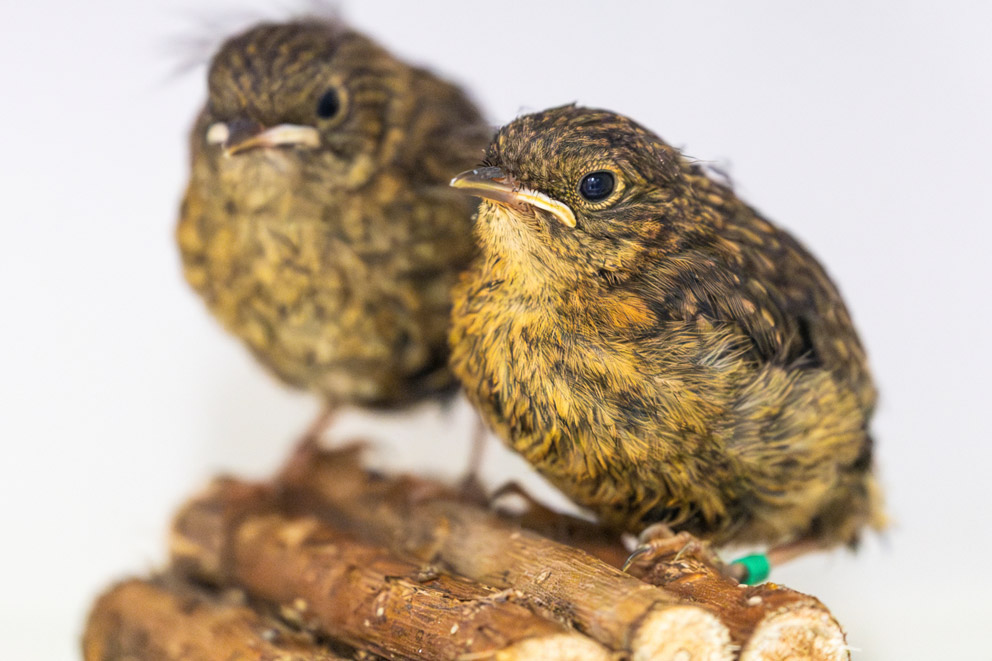- Find a Pet
- Advice and Welfare
- Ways to Give
- Get Involved
- What We Do
- Search
- My RSPCA
- Report a concern
- Gift in Wills
-
Colour modeVivid Calm
- Home
- Advice and welfare
- Wildlife
- Birds
- Baby birds
- Bird of prey
Found a baby bird of prey
If you find a baby bird of prey on the ground, they won't be fed by their parents and will need help. The only exception to this is tawny owlets.
Here's what to do if you find a baby bird of prey on its own.

Bird flu warning
Due to the Avian Influenza Prevention Zone (AIPZ) currently in place across the UK, some baby birds can't be handled. Please follow our bird flu and baby bird advice to check which species can be handled and what to do.
Renesting baby birds of prey
It's possible to renest and reunite young birds of prey with their parents, and in some cases, it may even be possible to place nestlings into wild nests of the same species to be fostered alongside existing chicks. However, this may require a licence and must be done by a professional.
Contact a professional rehabilitator and record exactly where the infant was found using the what3words app so the nest can be located. If possible, make a note of when you last saw the parents.
Monitor the area for other young birds that may have fallen and, if you can, keep monitoring after the birds have been reunited in case the chick falls out again.
Contact your local wildlife rehabilitation centre
Birds of prey should only be handled by professionals, using leather gloves or a thick towel, as they have strong, sharp talons capable of badly hurting anyone who tries to handle them. Keep pets and people away, and contact your local wildlife rehabilitation centre or vet for advice.
Tawny owlets
Healthy tawny owlets have fluffy brown feathers and pink eyelids. They go through a 'branching' phase, leaving the nest long before they can fly.
The adults use contact calls to locate them and will continue feeding them on the ground. They can climb vertically up a tree trunk back into the nest, so you should leave them where they are unless they're in a position of danger. If the owlet is in danger, place them in the tree or off the ground only a short distance away.
If you've already boxed the owlet
If you've already confined a healthy baby tawny owl, you'll need to return it to the exact place it was found as soon as possible before dusk. Once you've returned it, you should monitor it from a distance.
If you hear the parents and owlet calling to each other, it should be fine to be left alone. However, keep monitoring from a distance to ensure the parents feed the owlet and return to check it again in 24 and 48 hours.
If the parents don't return, please contact a wildlife rehabilitator for more advice.
For more information on what to do if you find a baby owl, visit the Barn Owl Trust.



